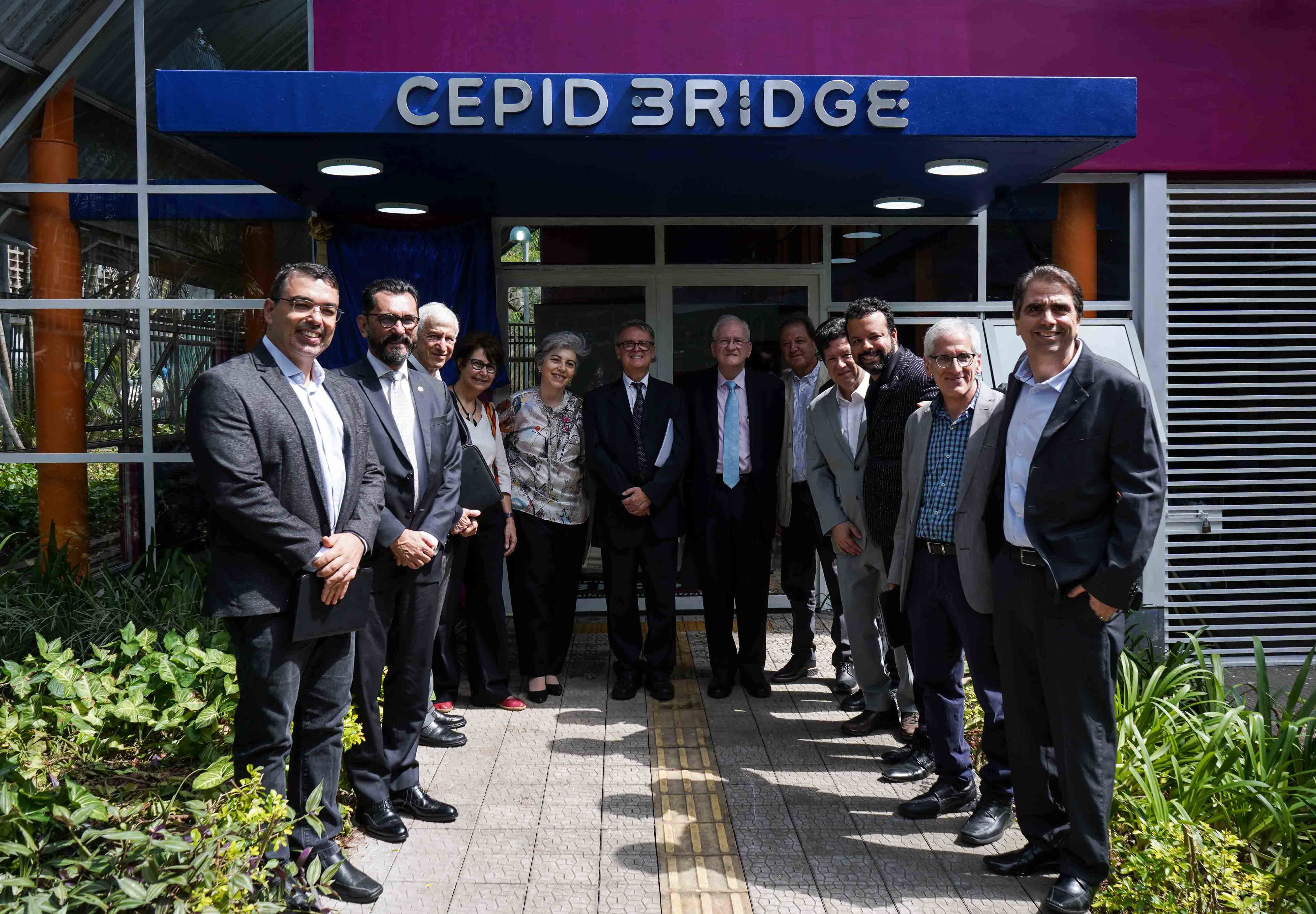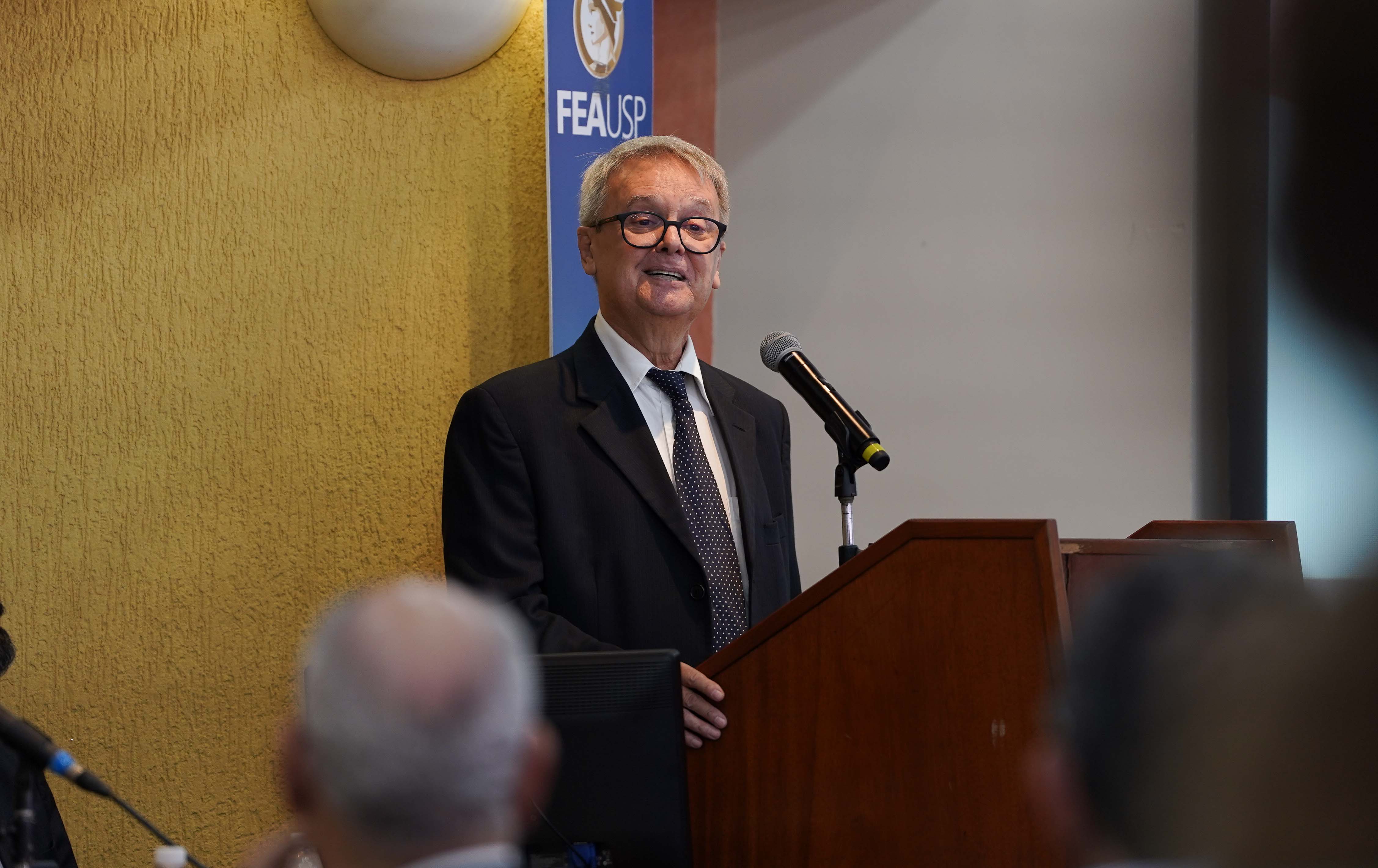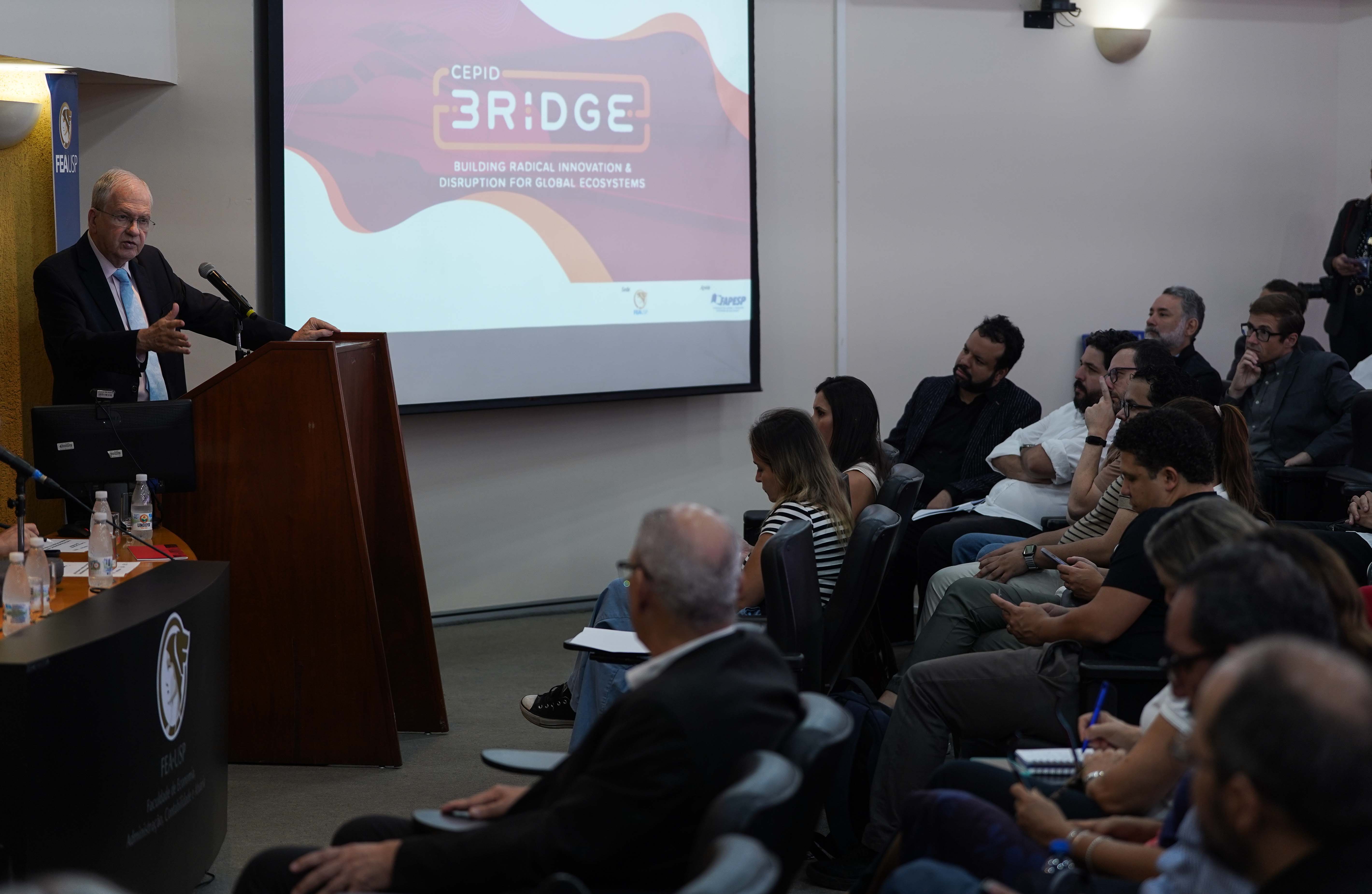

The Center was created to transform global challenges into opportunities for radical innovation (photo: Daniel Antônio/Agência FAPESP)
Inaugurated at a ceremony held at the University of São Paulo on March 31st, the FAPESP-funded center aims to tackle complex problems such as climate urgency, inequality and deindustrialization.
Inaugurated at a ceremony held at the University of São Paulo on March 31st, the FAPESP-funded center aims to tackle complex problems such as climate urgency, inequality and deindustrialization.

The Center was created to transform global challenges into opportunities for radical innovation (photo: Daniel Antônio/Agência FAPESP)
By Maria Fernanda Ziegler | Agência FAPESP – The first Research, Innovation and Dissemination Center (RIDC) based at the School of Economics, Business, Accounting and Actuary of the University of São Paulo (FEA-USP) was inaugurated on March 31st. Called RIDC Bridge: Ecosystem Management for Sustainable Transitions (https://bv.fapesp.br/en/auxilios/116050), its goal is to develop innovative methods and technologies to address global challenges such as climate urgency, inequality and deindustrialization, based on ecosystem management.
“Complex challenges require a multiplicity of knowledge and involve different actors, such as government, private organizations, NGOs and academia. In general, this interaction isn’t very effective, either for the formulation of public policies or for the development of innovative solutions, because there’s a lack of coordinated work to integrate the different stakeholders. Our goal is precisely to build bridges between these different actors. We want to act by orchestrating their actions in order to create mechanisms and tools that can bring knowledge to society and stimulate the emergence of startups and innovations,” José Afonso Mazzon, professor at FEA-USP and coordinator of the Center, told Agência FAPESP.

Mazzon: “Complex challenges require a multiplicity of knowledge” (photo: Daniel Antônio/Agência FAPESP)
The Bridge research group (Bridge is an acronym for Building Radical Innovation and Disruption for Global Ecosystems) was created in 2019 under USP’s Innovation Center (InovaUSP). It was founded by FEA professors Leonardo Augusto de Vasconcelos Gomes and Felipe Mendes Borini. The goal of the initiative was to form a consortium to develop a new generation of methodologies and tools for managing innovation and entrepreneurship in the context of ecosystems – a word borrowed from biology and used in the management field to refer to environments that foster connections between different actors for the benefit of innovation.
Approved by FAPESP, Bridge was granted RIDC status with the aim of transforming global challenges into opportunities for radical innovation. “Just like natural ecosystems, which depend on balance, developing global solutions in different business ecosystems also involves a collective effort. We’re going to apply this concept of ecosystems in a profound way, seeking not only technological solutions, but also governance solutions for a more sustainable and inclusive society,” said Mazzon during the inauguration ceremony.
It is worth noting that the new RIDC not only aims to stimulate the dissemination of knowledge and innovation, but is itself innovative in that it uses new approaches and methodologies for ecosystem management. In this way, it seeks to identify the shortcomings of ecosystems, such as the lack of data on a climatic event or difficulties in coordinating different actors, in order to generate technologies and innovations.
“This is an innovative initiative that seeks to change the panorama of science and society in general. The importance of this RIDC lies in the use of science, technology and innovation to address major global challenges,” said Marco Antonio Zago, President of FAPESP.

Marco Antonio Zago participated in the inauguration ceremony at FEA-USP (photo: Daniel Antonio/Agência FAPESP)
Bridge is one of the 25 RIDCs currently active. The program, now in its 25th year, funds multidisciplinary research centers that cover a broad spectrum of knowledge. “Bridge is grouped with four other RIDCs in the area of humanities, which, together with two other RIDCs in the area of life sciences, are part of FAPESP’s strategies to fund research focused on the formulation of public policies,” Zago pointed out.
Carlos Gilberto Carlotti Jr., Rector of USP, revealed that the new research center will develop manuals, software and learning platforms, as well as programs to accelerate startups and transfer knowledge.
“Bridge is part of a collaborative network that includes institutions such as UNICAMP [State University of Campinas], FEI [Padre Sabóia de Medeiros Ignatian Educational Foundation] and FGV [Getulio Vargas Foundation], as well as international partnerships with the universities of Oxford, Cambridge, Sussex [all three in the United Kingdom] and Texas [United States]. The expectation is that the Center will contribute to the role of universities, especially USP, by bringing together different actors in society, including academia and government, to promote solutions to today’s major social, environmental and innovation challenges,” said Carlotti Jr. in a video recorded especially for the inauguration ceremony.
Republish
The Agency FAPESP licenses news via Creative Commons (CC-BY-NC-ND) so that they can be republished free of charge and in a simple way by other digital or printed vehicles. Agência FAPESP must be credited as the source of the content being republished and the name of the reporter (if any) must be attributed. Using the HMTL button below allows compliance with these rules, detailed in Digital Republishing Policy FAPESP.





